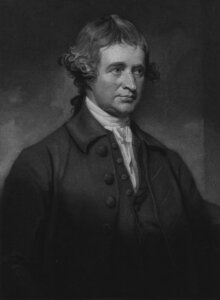In a time of fear and despair, we can still feel and inspire awe
In biblical times and in the Nazi era, ordinary men and women performed awe-inspiring acts; they still do today

A view of Mt. Everest. Photo by Getty Images
Gird yourselves: Yamim Nora’im will soon be upon us. This year, the High Holidays will kick off with Rosh Hashanah on Sept. 22 and climax on Oct. 1 with Yom Kippur. Unsurprisingly, some of us may already be dreading this 10-day period. Indeed, it would be surprising not to have this feeling: the literal translation of Yamim Nora’im, after all, is Days of Awe.
But the awe evoked by this holiday — one of fear over whether God will give us a pass for the coming year — is not the only way we should understand this extraordinary emotion. At rare times, we are chosen when we least expect it to experience awe, even in times as existentially awful as those we are now living through as both Jews and Americans.
Rooted in Old German and older Norse, the feeling of awe at first expressed little more than the sudden and shattering sense of fear. It is the force from the whirlwind that pulverized Job, emptying him of all thought and sensation apart from primordial fear; it is the force that knocked Saul to the ground on the road to Damascus, transforming him into Paul.
But over time, the word branched into other and more layered meanings. While retaining its original sense of dread, awe also came to suggest a kind of admiration or reverence for the very object that ignited that same overwhelming fright. In fact, this emotion has become so prized that we seek rather than flee from it.
What we can think of as the civilizing of awe has largely been the work of philosophers. For example, when we hear the name of Edmund Burke today, we think of the great advocate of conservatism. But in his own time, he was also known as a leading light of English romanticism. In his famous essay on the beautiful and the sublime, he declared that when we are confronted by vast and volatile sights in nature, we are filled, even lifted, by the combined sensations of horror and thrill, dread and delight:
“The passion caused by the great and sublime in nature, when those causes operate most powerfully is Astonishment, and astonishment is that state of the soul in which all its motions are suspended, with some degree of horror.”
It is the quest for this emotion that explains why Mount Everest is now besieged by amateur climbers and the extremely wealthy are lining up to be launched into space. Yet perhaps we need not scale mountains or orbit the earth to experience this emotion; perhaps it is not only the sublime works of Nature that envelop our minds and elevate our beings; perhaps we should instead look to those extraordinary individuals, both famous and obscure, whose actions on behalf of others are as mind-boggling and heart-bursting as the sight of snow-wrapped peaks.
Consider the case of André Trocmé, a Protestant pastor in the French town of Chambon-sur-Lignon, and his wife Magda Trocmé. 85 years ago, the Trocmés embarked on their death-defying effort to rescue the lives of as many Jewish refugees as they could from the reach of Vichy and Nazi officials. From his pulpit, Trocmé mobilized the entire town to act on their ethical demands of their faith.
“Tremendous pressure will be put on us to submit passively to a totalitarian ideology,” he announced in one sermon. “The duty of Christians is to use the weapons of the Spirit to oppose the violence that they will try to put on our consciences. … We shall resist whenever our adversaries demand of us obedience contrary to the orders of the gospel. We shall do so without fear, but also without pride and without hate.”
Over the next four years, while Vichy collaborated with the Nazi implementation of the Final Solution, Trocmé and his congregation proved as good as their word. They made, in fact, their word flesh. As a growing stream of refugee Jews, as well as French Jews that Vichy had denaturalized, fled to Chambon, the townspeople opened their doors wide. They created safe houses, forged identity cards, sheltered, fed and educated thousands of desperate Jewish men, women and children.
Especially children. This greatest of moral imperatives animated Trocmé’s nephew, Daniel Trocmé, a teacher in Chambon. The young man refused to abandon the children he taught and kept close and calmed them as best he could as they were packed off to the death camp of Maidenek. He died with them, all the while acting on the same ethical teaching expressed by his uncle. Trocmé and his fellow pastors were also arrested and sent to a concentration camp, but they were released a few months later.

In his landmark account of Chambon, Lest Innocent Blood Be Shed, the late American philosopher Philip Hallie was driven by a single question: Why did goodness happen in Chambon and the surrounding towns and villages? Historians, psychologists, and philosophers have since widened and deepened the search for an answer to this question. Remarkably, the nature of goodness is as difficult to capture as is the nature of evil. But for Hallie, the goodness of Trocmé and fellow rescuers was expressed by the pastor when a French officer demanded to know where he had hidden “his” Jews.
“We do not know what a Jew is,” Trocmé replied, “We know only men.”
If we reflect, unhurriedly and patiently, not just on this imperative, but also on the context in which Trocmé and hundreds of other rescuers acted on it, we might experience a sensation of awe as great as when we gaze across the southern ridge of the Grand Canyon. In both cases, we encounter an ancient virtue, reverence, praised by the late classicist Paul Woodruff. It is the capacity, he writes, “to feel respect in the right way toward the right people, to feel awe towards an object that transcends particular human interests.”
I, for one, feel that same awe, that same reverence when I learned about Hannah Dugan, a Milwaukee County judge, who was arrested when she tried to prevent the capture by ICE agents of an undocumented migrant in her courtroom. Or when I read reports of Americans who, by locking arms in front of Home Depots and city courts, try to prevent ICE agents from rounding up yet other undocumented migrants.
There have been many such instances — too many to count — of American citizens who risk imprisonment and injury to act on the moral command expressed by Trocmé, but which spans all faiths and civilizations. These instances “transcend particular human interests” — the many reasons we give ourselves to go about our lives rather than concern ourselves with the lives of strangers — and spark our sense of reverence.
It turns out the days of awe have always been with us.















